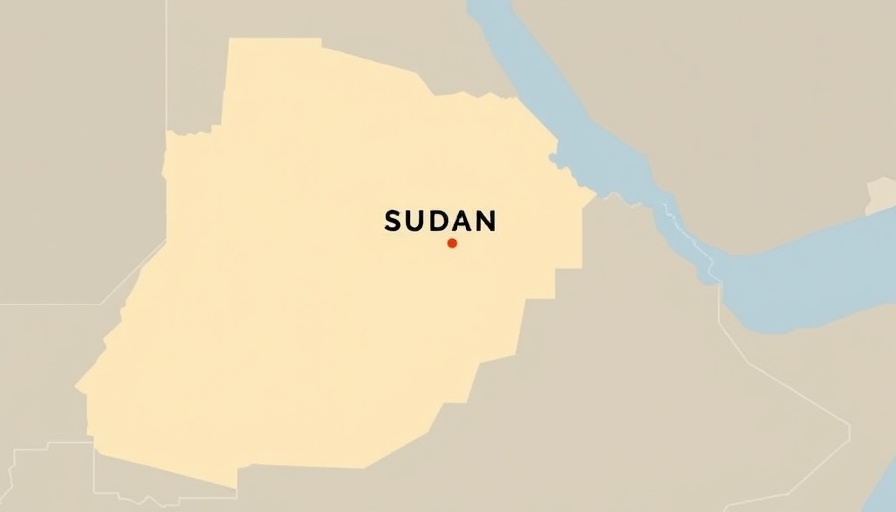
The Devastating Impact of the Sudanese Airstrike
In a shocking escalation of violence, a military airstrike on the local market in the village of Torah in Sudan's western region resulted in the tragic loss of at least 54 lives, as reported by aid groups on Tuesday. The incident, which occurred on Monday, not only caused a considerable number of casualties but also ignited a massive fire, further adding to the chaos.
In 'At least 54 killed in Sudanese military airstrike on market,' the discussion dives into the tragic airstrike and its wide-reaching implications, prompting a deeper analysis on the humanitarian crisis it represents.
Denial and Dispute: The Military's Response
The Sudanese military has vehemently denied targeting civilians, claiming that the allegations made by rights groups are incorrect. Despite official denials, there is a mounting condemnation from multiple rights organizations, which have branded the strike as a war crime due to its execution in a densely populated area. With more than half of the casualties being women and numerous others injured, the humanitarian implications are profound and distressing.
Casualties and Widespread Destruction
The sheer scale of the casualties reflects the dire situation in the ongoing conflict that erupted in April 2023. Over 28,000 people have lost their lives in this brutal clash, with millions displaced from their homes. The crisis in Sudan serves as a grim reminder of the vulnerability faced by its citizens, especially in communities that are already struggling with poverty and instability.
The Broader Context: Sudan’s Civilian Struggles
Sudan has a long history of conflict and political instability. The latest wave of violence has exacerbated an already critical humanitarian crisis, triggering calls for greater international intervention and support. This airstrike is not only a stark illustration of the local population's suffering but also a commentary on the wider implications of such military actions on civil society in Sudan. The targeting of marketplaces—essentially centers of community life—highlights a tactical choice that raises significant ethical concerns.
The Role of Rights Groups and International Reaction
As global attention turns toward Sudan's plight, human rights organizations are amplifying their voices, demanding accountability and transparency from the Sudanese military. The United Nations and various global powers are urged to engage more actively to ensure civilian safety and deter further war crimes. This incident underlines the crucial need for a concerted effort towards peaceful resolution and humanitarian aid.
Future Predictions: Ongoing Conflict and Potential Resolutions
The situation in Sudan continues to evolve, with prospects for peace remaining uncertain. Analysts predict that unless a comprehensive peace negotiation is initiated, the violence may spiral further, with civilians bearing the brunt of military actions. Ensuring humanitarian access and focusing on conflict resolution mechanisms is paramount as the international community watches closely, yearning for a peaceful end to the suffering.
Actions Needed: Call for International Support
The devastating airstrike in Torah highlights an urgent need for the international community to reassess its approach to Sudan. Attention must be directed towards facilitating humanitarian assistance, promoting peace talks, and holding those responsible for war crimes accountable. The stark statistics of casualties underscore the implication of inaction and the human cost of prolonged conflict.
Conclusion: Building Awareness and Change
Understanding the severe implications of this tragic event in Sudan is crucial for fostering international awareness and mobilizing support. As members of the global community, we must extend our voices to advocate for the innocent lives affected by this conflict and ensure that their stories resonate beyond the headlines.
Now, more than ever, it's essential for professionals and activists to advocate for peace and humanitarian support in Sudan. Join the global movement to highlight African issues and bring about change. The power of advocacy can make a difference in preventing further tragedies.
 Add Row
Add Row  Add
Add 




Write A Comment